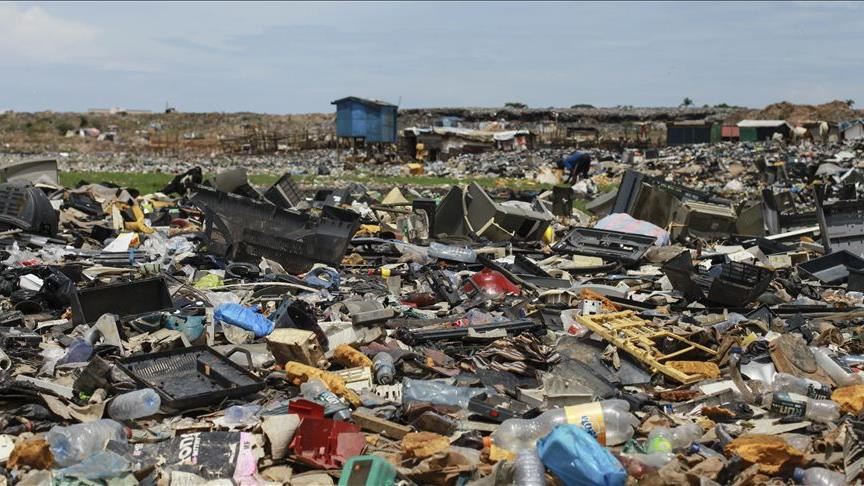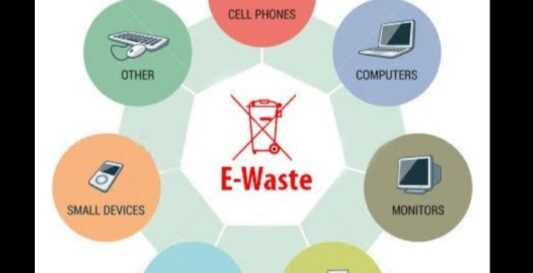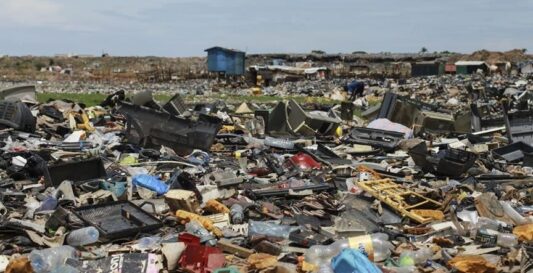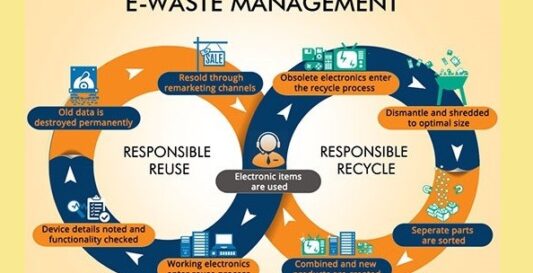The proliferation of electronic waste (e-waste) poses significant environmental challenges with far-reaching consequences. As discarded electronics accumulate in landfills or are incinerated, they release toxic substances into the environment, contaminating soil, water, and air. Hazardous materials such as lead, mercury, cadmium, and brominated flame retardants found in electronic devices can leach into the surrounding ecosystem, posing serious health risks to humans, wildlife, and ecosystems. Furthermore, improper disposal of e-waste contributes to soil and water pollution, disrupts ecosystems, and harms biodiversity. The energy-intensive processes involved in manufacturing new electronics exacerbate carbon emissions and contribute to climate change. Addressing the environmental effects of e-waste requires concerted efforts to promote responsible consumption, recycling, and disposal practices, as well as investment in sustainable technologies and infrastructure for e-waste management. Failure to address these issues risks irreversible damage to our environment and jeopardizes the well-being of current and future generations.
What are effects of e-waste on environment
- Home
- Clean Kerala
- What are effects of e-waste on environment






